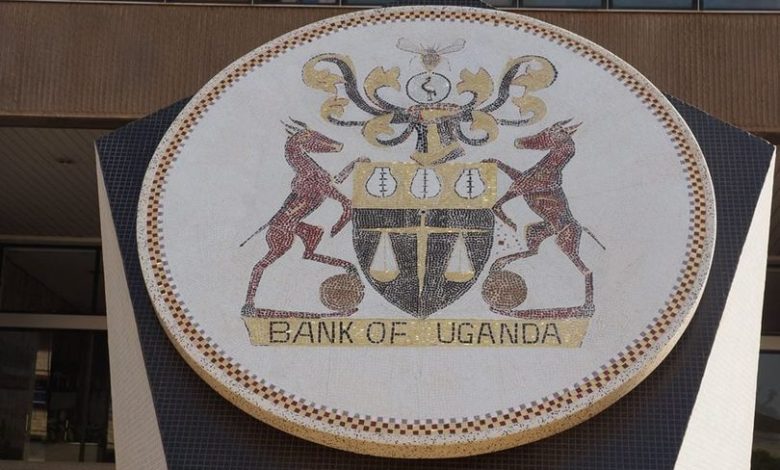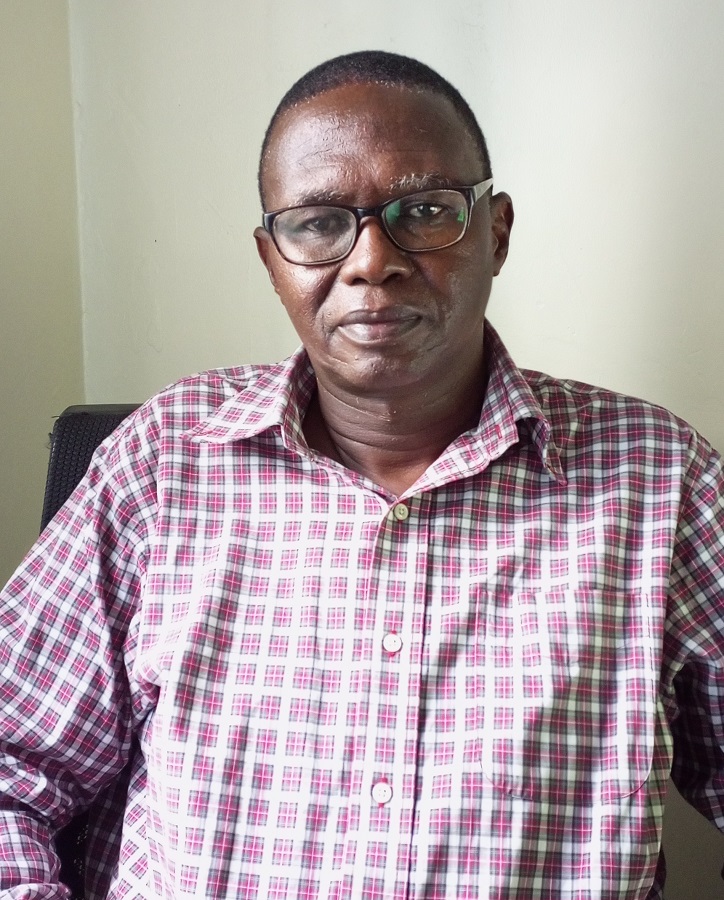Banking A Broke Economy: Banks At Crossroads As Current Economic Crisis Leaves Them Operating In A Wobbly Environment
But while banks target those in manufacturing and trade, the people there are certain they are not in a good shape to have a healthy relationship with financial institutions.

The global economy is bleeding and some governments like that of Sri Lanka are paying the ultimate price as citizens uprise demanding their leaders to take action. Solutions that even for the biggest and progressive economies are proving to be elusive and hard to come by to the satisfaction of the citizens.
Just about when the world was crawling back to its knees, recovering from the COVID-19 pandemic, a war in Eastern Europe between Russia and Ukraine exacerbated things leading to instability in oil and gas prices, unstable international forex exchange, stalled food supplies and global political stress.
The situation is not any different in Uganda as is the case in most of the developing countries across the world but most especially on the African continent. Residents in Mafubira, a township in Jinja City, have taken to the streets twice protesting that the government has not provided solutions to tame the high rising commodity and fuel prices.
On both occasions, it took the intervention of the Uganda police and the military to quell the protests. The Mafubira residents might have been quick to protest but the situation, according to public outcries, is not any different across the country. The Mafubira protests distantly sync with those of politician Dr Kizza Besigye and his accomplices in Kampala, the capital city of Uganda.
ALSO READ: Fuel Cost Tumbles July Business Productivity — Stanbic PMI Key Findings Reveal
For example, a bar of soap has risen from about Shs4000 at the start of the year to about Shs9000 today; the price at the fuel pumps has risen from about Shs4200 early this year to Shs6550, the current price. The rise in the cost of fuel has a direct impact on the transportation of the economy. The ripple effect of rising fuel prices can be felt in all aspects of the economy.
Resultant inflation bad for the economy
It has increasingly become hard to do business in Uganda because the economy is ‘broke’. The deputy governor Bank of Uganda (BoU), Dr Michael Atingi-Ego recently revealed that amidst these economic hardships, the inflation in Uganda has surged with projections showing that it will exceed the country’s target of average annual core inflation of 5%; currently at 6.8% as of July.
Dr Atingi-Ego warns that inflation levels above the 5% target retard economic growth. The BoU says the inflation is being driven by external factors and drought and to mitigate this, the central bank increased the central bank rate (CBR) and enhanced the monetary tightening by raising the cash reserve requirements for banks to 10%.
Dr Atingi-Ego is adamant that the BoU is prepared to do whatever it takes to restore inflation to low and stable levels in line with maintaining macroeconomic stability. He says: “Restoring inflation to the 5% target over the medium term (two to three years ahead) is our primary job, and we are committed to doing it, come rain or shine.”
Commercial banks to acquire customers
But while the central bank remains focused on fostering price stability and a sound financial sector, the situation is different and difficult on the ground – the banks are struggling to find customers to take up loans or deposit savings in their accounts. Many account holders have abandoned their accounts, some of them empty. This means that the banks have to look elsewhere for survival.
ALSO READ: Standard Chartered Bank Posts 28% Operating Profits Increase In AME Region
In an exclusive interview with Charmar News, Wilbrod Owor, the executive director of Uganda Banker’s Association (UBA), said that the banks have to be innovative and look out for alternative ways and services they can offer to customers in order to stay afloat.
The quick option, he said, as the banks did during the pandemic, is considering treasury bonds. Even when the economy was faced with COVID-19-induced travel restrictions, curfews and a two-year long lockdown, many banks mid-this year posted positive financial results indicating profits.
“Even when the banks were not making any money from loans, and nobody was taking loans, the banks made some money from the bonds. This kept their health,” Owor said.
Asked if the current economic storm is anything the banking sector should be worried about, Owor answered in the affirmative. “When your customers are struggling, you struggle too. We, as bankers, have every reason to be worried,” he said, explaining that banks are looking at alternative avenues to finance like project financing.
Banks thinking out of the box
The vice chairman, of the United Bank for Africa (UBA) Julius Kakeeto, speaking at Uganda Bankers Conference in July this year revealed that the banking sector is looking at alternative financing options like green finance (climate finance), responsible banking for sustainability and other forms of blended financing.
“Tourism is one of the largest and fastest growing industries globally and will play a significant role in regaining the socio-economic recovery post the covid-19 pandemic,” Kakeeto pointed out, adding that tourism promotes trade & investment and significantly contributes to the development of other sectors including the construction sector, manufacturing, retail sector, transport and logistics, food services and financial services.
As for Equity Bank Uganda, according to Anthony Kituuka, the executive director, they launched the “Africa Recovery and Resilience Plan” targeting food and agriculture and enabling coordinated, connected and capacitated supply chains and mechanization to drive higher output of raw materials and ultimately lead to more inclusive industrialization in Uganda.
But while banks target those in manufacturing and trade, the people there are certain they are not in a good shape to have a healthy relationship with financial institutions. For example, Kampala City Traders Association (KACITA) Uganda says they are suffocating from the old loans they took from the banks before the pandemic; therefore, getting newer loans will call for special arrangements between the lender and the borrower.
In an interview with Charmar News, Musoke Thadeus Nagenda, the chairman of KACITA Uganda, traders want to sit down with the banks so that they can agree on new terms for paying back the loans. This is an idea Owor of the Uganda Banker’s Association embraces. And seeing the tough economic times we are in, individual banks should be open to this arrangement, at least for the short while.
Restructure financing for manufacturing
Richard Mubiru, Group Corporate Affairs Director, Picfare Group of Companies is of the view that there is a ‘need to look at how we can restructure financing for manufacturing in Uganda.’
ALSO READ: Banks Invited To Target Entire Manufacturing Value Chain With Longtime Financing
The game changer is for us to focus on heavy manufacturing, he said. “For manufacturing to grow, you require financing that is patient enough to pay back in say 10 years, but now, you get 5 years, and if you are a good bargainer, you get 7 years,” he explained while presenting at the bankers’ conference.
But for people like Francis Kamulegeya, an economist, this cordial relationship between the banks and borrowers has to be harnessed. He told the banker’s conference: “Banks need to rethink asking for collateral as security for the credit. Some SMEs have huge contracts worth millions of dollars without the standard collateral that banks require. This is an opportunity for banks to lend as they support SMEs,”
And developing partners like the European Union are coming on board; they have expressed interest to work with banks to support SMEs. According to Luis Lechiguero, European Union Delegation to Uganda, banks need to help SMEs improve their business plans to be more productive, to learn and fulfil the requirements of the banks.
ALSO READ: Banks Need To Forge Solid Partnerships With The Tourism Sector To Boost Recovery
“We are proposing you, the 25 commercial banks in Uganda, to join the European Union and the interested development partners under the Sustainable Business for Uganda Platform to come together and explore new modalities of support for sectors like tourism,”
And in all these troubles, the government is cognizant of the trials entrepreneurs are going through. Maxwell Odongo, a planner, education and skills development officer at National Planning Authority (NPA), reading Dr Joseph Muvawala’s speech at the 9th Annual National Conference on Economic Social and Cultural Rights this month, advised the government to lower the cost of credit.
This, the NPA believes, will boost private sector investment as one of the ways to improve the standard of living of Ugandans.







